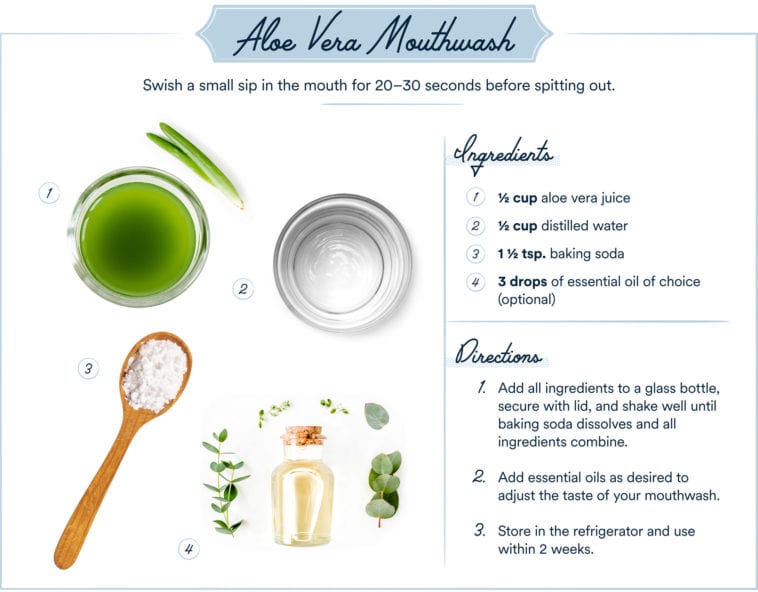Like beauty and skincare products, oral health products may contain harsh chemicals and preservatives that detract from the benefits advertised on the packaging. However, if you’re looking for a more all-natural route when it comes to keeping your smile healthy and strong, then DIY mouthwash is perfect for you.
There are many benefits of creating your own personal care products. One of those benefits is the eco-friendly ability to store mouthwash in a reusable glass container rather than the plastic packaging that many store-bought products come in. While it’s convenient to pick up a bottle of mouthwash from the store, the plastic bottles that store mouthwash will take about 450 years to decompose. (And that’s per bottle!)
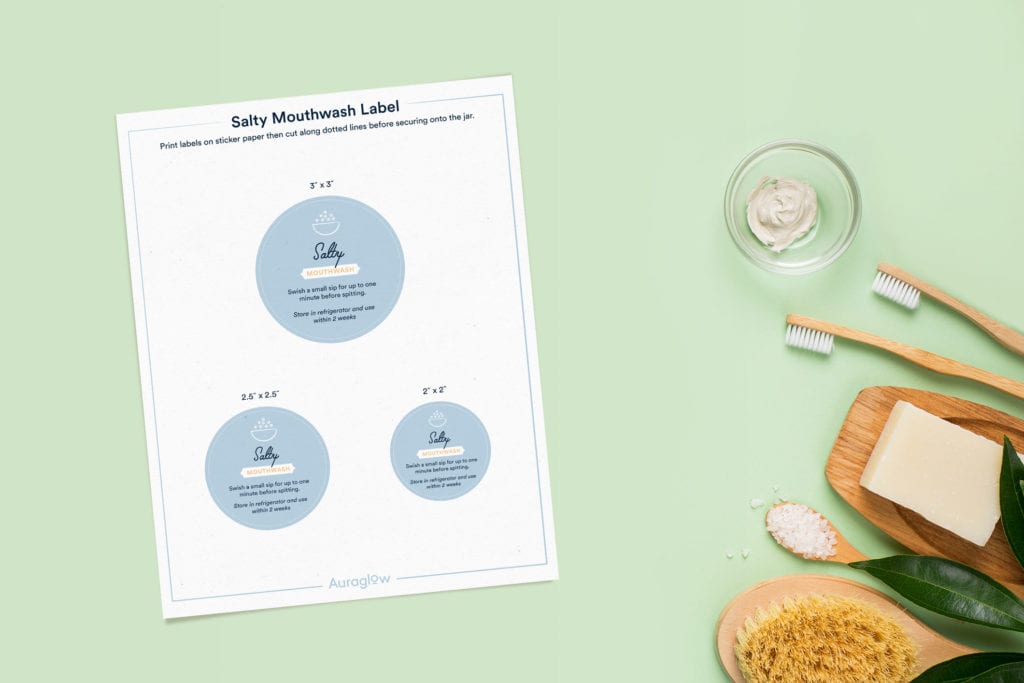
Another benefit of making your own mouthwash at home is that you will likely save money. Many of the recipes included below include ingredients that you probably have on-hand or that you can purchase at a low cost. And by making your own mouthwash, you can customize the taste of your rinse and pick a recipe that will help target your specific oral health concern.
We know that brushing and visiting your dentist regularly is key to a healthy mouth, but mouthwash has also been proven to aid oral care. The American Dental Association has found that mouthwash is excellent at cleaning those hard-to-reach spaces in your mouth that a toothbrush or floss has trouble getting to.
How to Make Your Mouthwash at Home
To get you inspired, Auraglow created four homemade mouthwash recipes to improve your smile today. In addition, they’ve also shared printable labels so you can keep track of when you created your mouthwash and how to use it.
Salty Mouthwash
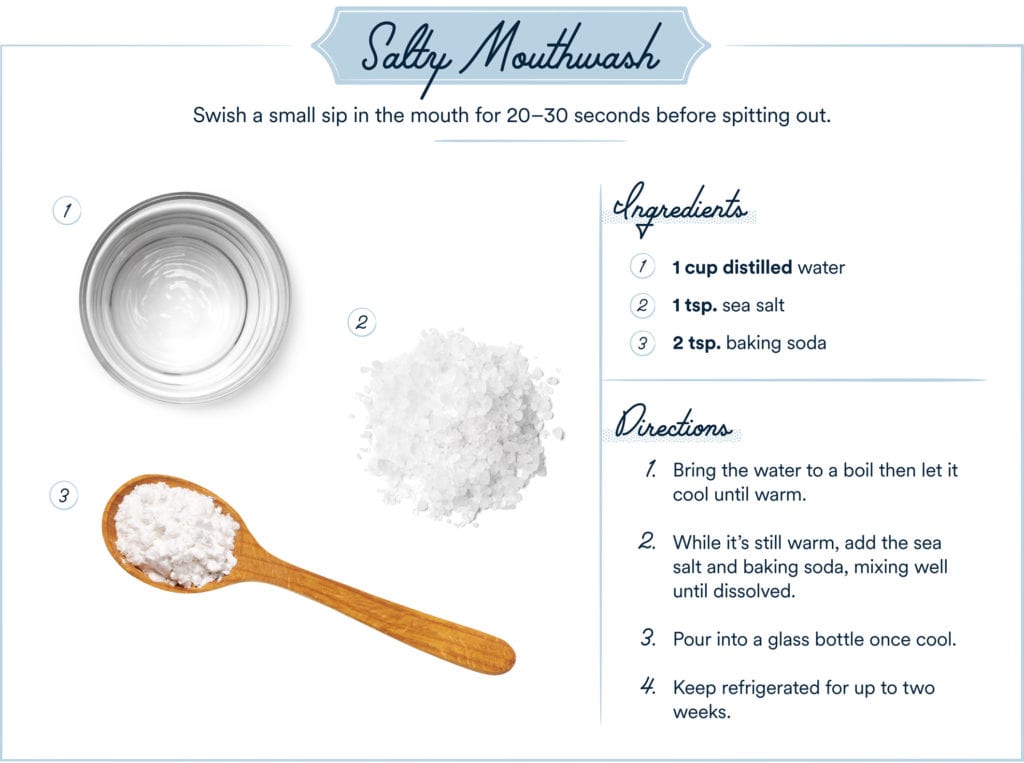
If you’ve ever had a cut in your mouth or experience gum irritation, then there’s a chance that your dentist recommended warm salt water rinse to ease the pain. This mouthwash follows that similar thought process to help alleviate inflammation and gum problems.
Dentists have long been prescribed sea salt rinses for tooth pain and inflammation because sea salt has antibacterial and anti-inflammatory properties. This mouthwash can also help to clean stains on your teeth. The addition of baking soda in this recipe also offers the added benefit of naturally whitening teeth.
Aloe Vera Mouthwash
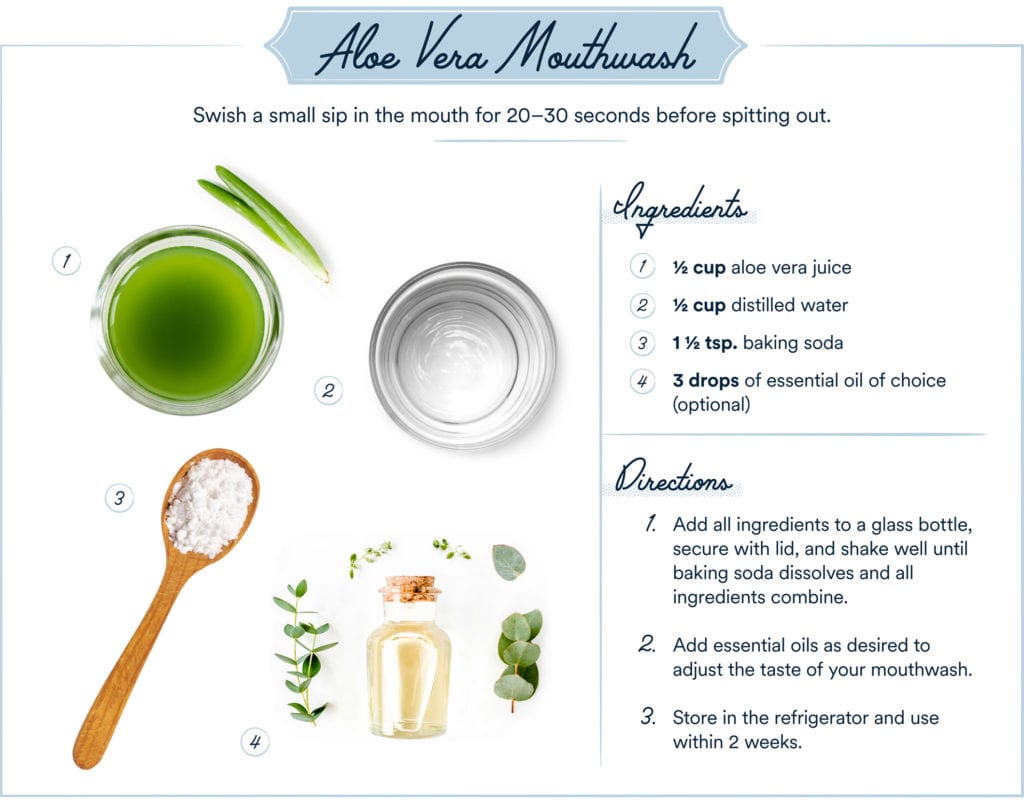
Aloe vera isn’t just for sunburns. It also contains anti-inflammatory and antibacterial properties that help relieve inflammation and other oral problems. If you experience gingivitis, this is an especially great rinse for you. A 2013 study found that aloe vera can help speed up recovery from gingivitis and reduce gingivitis-caused inflammation.
While aloe vera can be a great addition to your oral care routine, it’s not suitable for everyone. If you take medication to control your blood sugar, you should consult with your doctor before using it as it may cause your blood sugar levels to drop.
Minty Clove Mouthwash
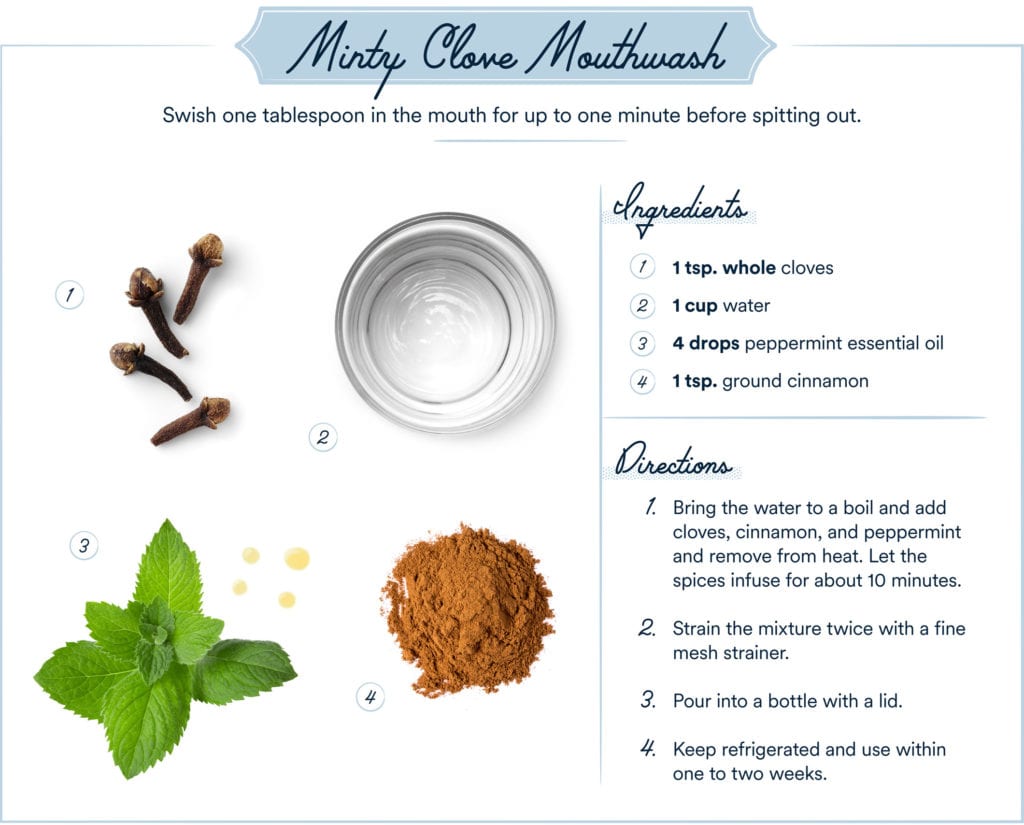
If you experience bad breath, this is the mouthwash for you. This simple recipe includes cinnamon, cloves, and peppermint to zap bad breath and improve overall oral health. Cinnamon is a powerful bad breath fighter and is commonly used in toothpaste and gum as it contains cinnamic aldehyde, which reduces the amount of bacteria in your saliva.
In addition, clove oil contains a natural anesthetic called eugenol. This helps numb and reduce pain to ease a toothache and ease inflammation and irritation in the mouth. But the benefits don’t stop there. Clove oil has also been shown to:
- Reduce gum swelling and irritation
- Stimulate circulation
- Remineralize teeth
pH Balancing Mouthwash
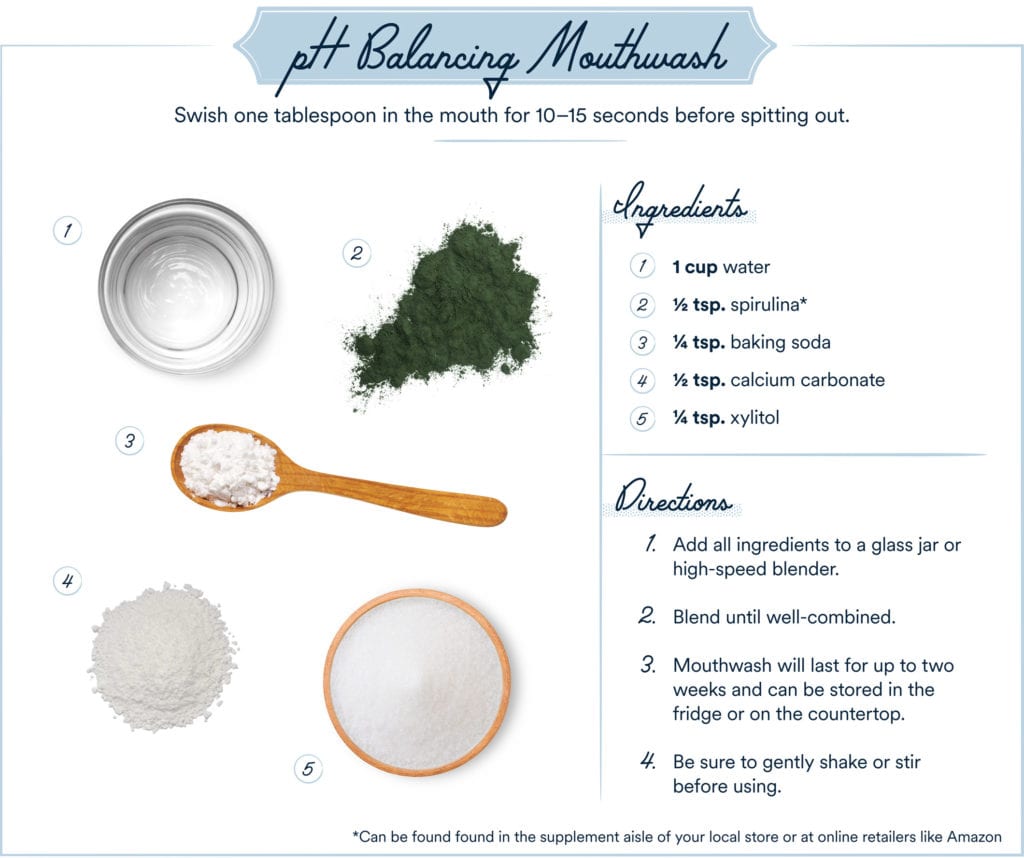
If you’re a big coffee or kombucha drinker, this is an excellent mouthwash to incorporate into your oral health routine. A healthy mouth should be at a neutral pH level, which is between 6.2 to 7.6. When you consume acidic food and drink, this lowers the pH level in your mouth. This allows demineralization to happen, weakening your teeth and leading to many oral health problems, including cavities and tooth decay.
The high acidic content in common beverages like coffee and red wine provides opportunities for the enamel of your teeth to break down, which can lead to bad breath, gingivitis, and cavities. By using a pH-balancing mouthwash, you can help neutralize the acidic properties of common food and beverages to improve your overall oral health.
Peppermint and Tea Tree Oil Mouthwash
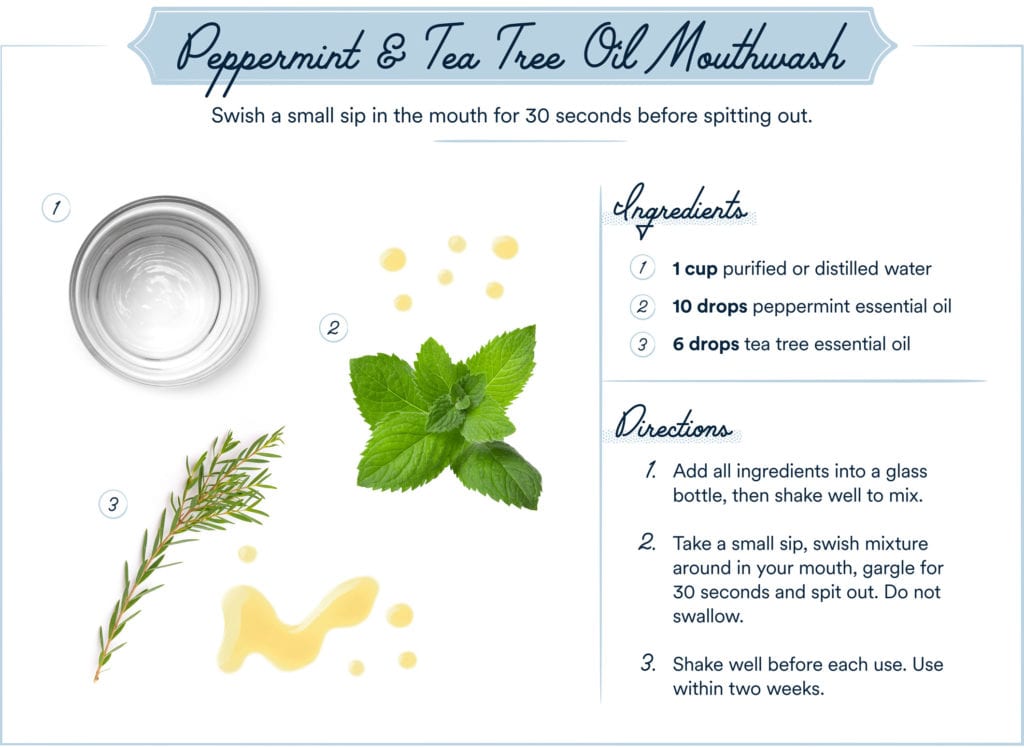
This three-ingredient mouthwash is another great bad breath fighting mouthwash. Peppermint is a common ingredient in many oral health products because it boasts natural antiseptic properties. Tea tree oil is an essential oil that is a great natural remedy for bad breath and relieving irritated gums. It is important to note that tea tree oil should not be swallowed, so take care that you entirely spit out the mouthwash after using.

